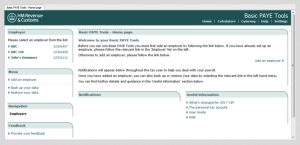In business, there are times when “how far” is as important as “how well” – times when you shouldn’t compromise time for quality, or vice-versa, but rather must strike a balance between both.
Being productive is all about doing the best quality work within a reasonable amount of time. Therefore, it’s a no-brainer that to become a successful entrepreneur or an employee, productivity must be your strong suit. It’s equally important for managers to strive at improving employee productivity in order to grow their business. In view of these, this article will walk you through 10 pragmatic ways to increase both personal and organizational productivity.
#1. Use a Standing Desk:
Standing has been widely touted as an effective way to drastically soar productivity, and evidence abound to prove it. In 2016, a study reported in The Huffington Post claimed that 70 percent of federal employees found their productivity increased by simply not sitting while working.
Standing is assumed to aid productivity through various ways. First, it improves health and provides energy by reducing back and neck pain, burning calories, among other things. Second, standing decreases one’s tendency of falling asleep while working. Also, there are claims that it generally helps to increase creativity.
A study suggests that standing desks could improve productivity by a staggering 46%. Thus, such desks are largely provided in many organizations.
It would be unwise to emphasize too much on standing’s ‘productivity-inducing’ quality, as preferences differ. Try it out to see whether it works for you or your employees.
#2. Take Occasional Breaks:
There is no doubting that most tasks require a great deal of concentration. However, a professor of psychology at University of Illinois, suggested that the brain gradually stops registering a sight, sound or feeling if that stimulus remains constant over time. In other words, attention tends to naturally decrease with prolonged, uninterrupted concentration.
Taking occasional breaks while working is a good way to stay productive for a relatively longer time. Breaks tend to rejuvenate, rekindle attention and restore motivation. They can also prevent “decision fatigue”; in fact, a ‘walking rest’ is considered to help prolong memories and improve learning.
Don’t overwork yourself when you could avoid it; take a break as soon as you start finding it difficult to focus on the job at hand. Managers should also schedule appropriate break sessions for employees.
#3. Delegate When Necessary and Possible:
Multitasking is a bane of productivity, and being a control freak doesn’t help matters either. While multitasking, you are basically denying yourself the opportunity to actually get much work done as juggling various tasks divides concentration and ultimately slows down work-flow.
To boost your productivity, you must learn when to let go of and prioritize work. Delegate tasks that you’d be better off not doing and trust those to whom you delegate them.
Don’t be a multitasking control-freak!
#4. Tidy Up Your Workspace:
A clean workspace is key to being more productive, claims a study by the Harvard Business Review. The same study also suggests that a neat desk can lead to five additional minutes of productive work every day.
Further, a research from Princeton Neuroscience Institute indicates that focusing on too many things at once can limit one’s thoughts. Thus, a clean work space would most definitely make your focus more on the job at hand by freeing your mind of potential distractions that could sway you away from your work. Things like your mobile phone and random documents are good examples of such distractions.
In a nutshell, reduce the clutter and save yourself from being overwhelmed.
#5. Use Effective Analytic Technologies:
Businesses with relevant, large enough datasets and effective tools for manipulating them are more privileged than those without. But in what way does analytics boost productivity, you ask? Simple.
Well-analyzed data makes it easier to make good business decisions and even fastens the process. Without these data, it’s amazingly easy to gloss over necessary facts and delay the execution of a project.
Some years ago, through an effective analysis of the data at their disposal, Orbitz discovered that Apple users spent as much as 30% more on a night on hotels. Leveraging the discovery, they decided to display costlier hotels to Apple users while leaving the less costly to Windows users.
The point is: a guided analysis of data enabled them tailor their service to customers based on assumed preferences and propensity to pay. This must have increased their profit and reduced the time needed to come up with strategies needed to achieve the same thing.
#6. Use Time-Management/ Tracking Software:
Time is an invaluable resource. In fact, your business’s bottom line is bound to be affected by the manner with which employees manage time. Hence, devising means to manage and track time would be a useful undertaking.
Although there are various options to help in tracking and managing time, special software for such a purpose are usually the best way to go. A good time-tracking software will make it easier for you to determine the period in the day in which you’re most productive and the type of work you’re generally faster at doing. Therefore, it’d enable you weigh your options and ultimately improve your productivity.
#7 Prioritize Knowledge Acquisition:
This is a key, albeit mostly unmentioned, step to actually improving productivity.
Truth is: doing what you have little knowledge of may frustrate you and even stifle meaningful progress. Whereas, possessing a good grasp of what’s required to do a quality job will make you a better performer.
You need to strive for a better knowledge-base either at the personal or organizational level. A manager who provides effective training programs for employees would be turbo-charging their confidence and making them more productive performers
#8. Get Enough Sleep:
It’s a common belief that chronic night-owls tend to have a high IQ. Some cultures also deem the act of keeping late nights as proof of hard work, dedication and discipline. These beliefs, in fact, give some individuals self-imposed insomnia.
In the real sense, however, sleep deprivation could be more detrimental to your health and performance than you think. Getting enough sleep improves memory, strengthens focus, increases energy and facilitates quite a number of things that soars productivity and which sleep deprivation naturally impedes.
#9. Make Use of Effective Collaboration Tools.
Sometimes you’ll need to work as a member of a team or may require the help of others to get a job done. Without proper coordination, however, two or more heads may not always be better than one.
There are tools to help facilitate collaboration and thus aid coordination. A good example is Github, which is primarily a platform for software developers to jointly work on software and commit changes, independently. Some other general-purpose collaboration tools that aid work-flow are Slack, Trello, Google Keep and a host of others. They all have the potential of making you more productive in your daily work.
#10. Minimize Face-to-Face Interactions:
Even in a not-so-crowded workplace, there’d be times when you, as an employee, would have to put your job on hold in order to talk to someone who needs help for something quite trivial or who just wants a tête-à-tête. This scenario can be frustrating and more frequent than normal.
To avoid this, it’s reasonable to avoid things that could lead to face-to-face interactions while working. Many software developers are known to wear headphones for this purpose.
Business & Finance Articles on Business 2 Community(112)






